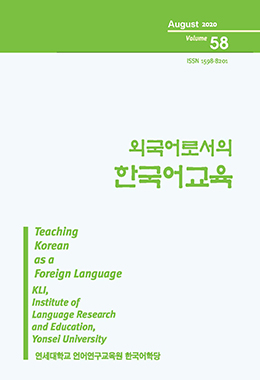This paper would like to share the operational experience of non-face-to-face real-time online Korean language classes conducted entirely at the institutional level, and suggest future improvements for the first time in Korea. COVID 19, which occurred in 2019, forced education around the world to undergo rapid changes with non-face-to-face education. The institute where this research was also conducted ran classes using real-time video class applications for learners throughout the entire course. A survey of 335 learners and 93 teachers was conducted after a real-time Korean language class in a semester. The investigation found problems in the psychological aspects, such as difficulties in technical aspects and learners’ understanding of class, and the weakening of class atmosphere and motivation. To improve this, it is necessary to strengthen the pre-education and supplement the manpower that solves technical problems, provide diverse and rich teaching materials and expand the opportunity for students to ask questions and speak, create a free and active teaching atmosphere, and make efforts to motivate the learners by the teachers. Furthermore, It is expected that non-face-to-face real-time classes will be established as new courses for various learners, not as an alternative to offline ones.


